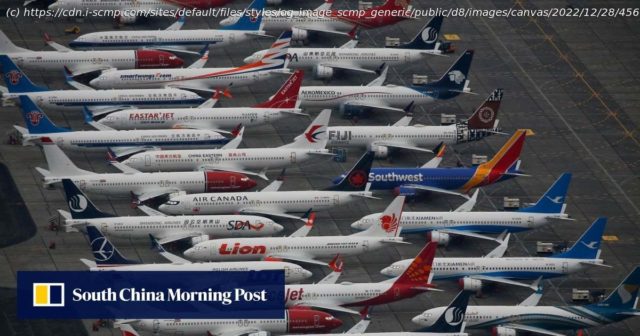The worldwide shortage of planes, combined with rising oil prices, means that sky-high airfares are likely to remain, and things could get worse before they get better, aviation experts say.
“:”As travel springs back and even China dismantles the last remaining Covid curbs, one stark truth is beginning to emerge – the world is running desperately short of planes. With carriers from United Airlines Holdings to Air India placing, or looking to place, jet orders that number in the hundreds, Boeing and Airbus are crowing variously about blockbuster deals. But supply chain constraints mean those planes will not be delivered until possibly years down the track – Jefferies estimates there’s an order backlog of 12,720 aircraft currently. All that means the sky-high airfares that people have complained bitterly about over the past few months are here to stay, and things could get worse before they get better. “People got used to lower fares during the pandemic and China’s reopening will make it worse,” Ajay Awtaney, the founder of frequent flier website LiveFromALounge.com, said. “It’s not just a shortage of planes but also other factors like oil prices.” While one cashed-up airline in a particular jurisdiction may have the financial wherewithal to bring prices down, that would likely cause other carriers to stumble, “leading to even higher fares in the long run,” Awtaney said. Boeing and Airbus, the planemaking giants that largely enjoy a duopoly supplying passenger jets, are sold out for their most popular single-aisle models through until at least 2029. China’s aviation ambitions enter new era with first delivery of C919 jet Compounding the demand from airlines as people once again take to the skies with a vengeance and carriers look to refresh ageing fleets are supply chain challenges – everything from getting the necessary components to labour shortages.






